Drug Addictions We Treat at our Nashville Treatment Center
Home / Drug Addictions We Treat
Mental Health & Addiction Treatment That Meets You Where You Are | Nashville, TN
At Southeast Addiction Center Tennessee, we know addiction doesn’t follow one pattern. It changes your thoughts, your relationships, your health, and your sense of direction. That’s why our Nashville treatment team takes a personalized, whole-human approach to helping you understand and overcome the substance you’re struggling with.
Located in the Berry Hill neighborhood — minutes from downtown Nashville — our center treats a full range of drug and alcohol addictions using trauma-informed therapy, medical support, and flexible outpatient care that fits your life.
There’s no one way addiction looks. But there is a way forward.
See Which Nashville Program Fits Your Needs
Get The Help You Deserve | Nashville, TN
What We Treat — A More Human Way to Understand Addiction
Instead of long medical lists or generic definitions, we break down addiction into what matters most:
What it does to your mind, your body, and your life — and how we help you rebuild.
Below are the substances we treat, described with clarity, accuracy, and compassion.
Alcohol Addiction in Nashville — Addiction That Hides in Plain Sight
Alcohol shows up in celebrations, stress relief, routine, and connection—until it quietly takes over.
How alcohol affects you:
- Mood swings and irritability
- Sleep disruption
- Increased anxiety or depression
- Strained relationships
- Loss of control or binge patterns
How we treat alcohol use at our Nashville location:
- Therapy that focuses on habits, emotions, and root causes
- Naltrexone or medication support when appropriate
- Relapse-prevention and coping skills
- Flexible outpatient structure so treatment fits your routine
Alcohol addiction is common. Treating it with dignity should be too.
Opioids & Fentanyl — The Most Dangerous Crisis in Nashville, TN
Opioids don’t just create dependence — they hijack the brain. Fentanyl makes that process faster, stronger, and more life-threatening.
Common forms:
- Oxycodone, hydrocodone, Percocet
- Heroin
- Fentanyl (pressed pills, powders, mixes)
How opioid addiction affects you:
- Cravings that feel impossible to ignore
- Withdrawal that feels unbearable
- Mood crashes
- High overdose risk
How we treat opioid addiction:
- Suboxone-based MAT (if clinically recommended)
- Emotional regulation and trauma-focused therapy
- Safety planning and long-term support
- A team experienced in Tennessee’s opioid epidemic
You’re not your opioid addiction — you’re a person fighting a chemical that changes the brain. We can help you safely break that cycle.
Meth & Stimulants — When Energy Becomes Exhaustion
Meth and stimulants offer a short-lived burst of euphoria, focus, or escape — then quickly turn into paranoia, exhaustion, and emotional burnout.
How stimulants affect you:
- Anxiety, panic, or irritability
- Sleep disruption
- Loss of appetite
- Impulsive decisions
- Social or relationship breakdown
How we treat it:
- CBT + DBT for impulse control and emotion balance
- Trauma-informed therapy for underlying pain
- Rebuilding routine, sleep, and stability
- Group therapy for accountability
Meth addiction thrives in isolation — We treat it by rebuilding connection.
Prescription Drugs & Benzodiazepines — When “Legitimate” Use Becomes Dependency
Addiction to prescribed medications like Xanax, Klonopin, Benzos, or pain medications is more common than people admit — especially in high-stress careers, parenting, or long-term anxiety struggles.
How dependency develops:
- Tolerance builds quickly
- Stopping suddenly is dangerous
- Anxiety or panic intensifies
- Sleep or daily function becomes dependent on medication
How we treat prescription drug addiction:
- Slow, clinician-guided tapering
- Anxiety + trauma therapy
- Life-skills and coping development
- Medical oversight and restorative support
It’s not your fault. These medications are powerful — and so is recovery.
Kratom — The “Natural” Drug That Isn’t as Harmless as It Sounds
Kratom is often marketed as a supplement for energy, pain, or mood — but in reality, it activates opioid receptors and can create severe dependence.
How kratom impacts you:
- Withdrawal similar to opioids
- Emotional instability
- Cravings
- Sleep disruption
Our approach:
- Stabilization support
- MAT when appropriate
- Therapy focused on patterns, triggers, and stress regulation
Kratom addiction is real. And recoverable.
Cocaine & Other Stimulants — The Crash That Feels Never-Ending
Cocaine use impacts dopamine levels quickly and dramatically, leaving you stuck between highs and crashes that affect mood, impulse control, and relationships.
Treatment includes:
- CBT for behavior change
- DBT for emotional stability
- Lifestyle rebuilding
- Targeted cravings management
Marijuana & Cannabis — When “It’s Just Weed” Stops Being True
High-potency cannabis can impact motivation, sleep, anxiety, and emotional regulation.
We help clients who feel:
- “I can’t stop even though I want to.”
- “I use it to cope with stress or PTSD.”
- “I feel foggy or disconnected.”
Treatment focuses on:
- Anxiety + mood stabilization
- Behavioral coaching
- Supportive therapy for habit change
How Treatment Works at Our Nashville Center
Recovery isn’t a straight line — and our process reflects that.
01. Assessment
We learn your history, symptoms, and goals (same day or next day).
02. Personalized Plan
We match your needs with the right level of care:
- PHP
- IOP
- Outpatient
- MAT Support
- Sober Living Coordination
03. Therapy & Support
You work with licensed clinicians trained in trauma, addiction, and co-occurring mental health.
04. Long-Term Strategy
We monitor progress, adjust goals, and help you transition into sustainable recovery.
Mental Health Conditions We Also Treat at Our Nashville Facility
Because addiction rarely exists alone, we also support mental health:
- Anxiety disorders
- Depression & mood disorders
- PTSD & trauma
- ADHD
- Bipolar disorder
- Stress disorders
Integrated treatment leads to deeper recovery.
Insurance, Admissions & Scheduling
Starting treatment shouldn’t feel complicated — and we make sure it’s not.
- Most major Tennessee insurance plans are accepted
- Same-day or next-day assessments
- Evening availability for working professionals
- Free parking at our Nashville center
- Confidential, judgment-free support
Find Mental Health + Addiction Support Near Nashville
Call (615) 326-6449 anytime.
Start Healing Today — Nashville’s Addiction Specialists Are Here for You
No matter what substance you’re facing, you’re not facing it alone.
Our Nashville clinical team will walk with you through every step — with compassion, structure, and the belief that recovery is possible for you.
Verify Your Tennessee Insurance in Minutes
Our Programs
- Partial Hospitalization Program (PHP)
- Intensive Outpatient Program (IOP)
- Medical Detox
- Sober Living
About Us
- Our Team
- Tour
- Testimonials
- FAQs
Your Recovery Starts Here
Our admissions team is ready 24/7 to guide you through the process, from admission to coordinating travel, treatment programs, and more.
Most Insurances Accepted
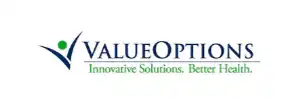
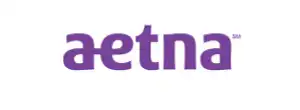
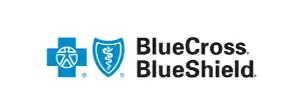

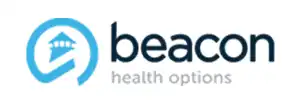

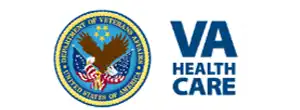

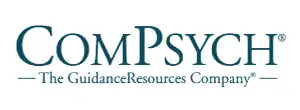

Drug Addiction Frequently Asked Questions (FAQ)

Anyone can develop an SUD. Factors contributing to increased risk for addiction include genetics, family history of substance abuse, the environment, and the age at which someone is introduced to a substance.
Preventing drug addiction is all about educating yourself and your loved ones. Knowing the addictiveness of common drugs so you can stay clear of them is a vital step.
Studies indicate that one-in-nine Americans use drugs recreationally.
A drug addiction diagnosis starts with an assessment. Your healthcare provider will complete an exam and recommend individualized treatment for your situation.
Sadly, there is no cure for addiction. It is a lifelong disease. However, proper treatment and care management make it possible to enjoy life again.